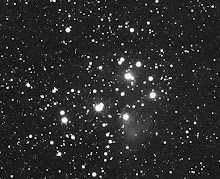It takes facing some of the grim truths to see the fields of extensive good that exist in nature. Concepts are sometimes divided not by mountains or seas but by hedges, creeks or ditches partly avoided through nothing more than habit.
Whether catastrophically or not, economic and financial systems are in immense change that should be foreseen more effectively. Electric eels established electricity a hundred million years ago, and recently human beings launched stone tools, fire, ceramics, houses and sanctuaries, writing, energy-using inanimate machines and in substantially greater depth than ever before, silicon.
Knowing the enemy as confusion and unanticipated events, and knowing oneself (the economic and financial systems) are, as always, most-important assets in winning.
Fortunately, vigilance in America is high in every measure. World economic stability increases continuously, yet technology is extremely new, almost instantaneous on the evolutionary scene. This must be understood better.
By now the distribution of money resembles the distribution of that ancient vital necessity, water. Each has its own well known but distinct problems. Just as with water, money is volatile. Reservoirs must be covered or at least guarded or fenced and watched with vigilance lest they be poisoned. Just so, financial systems must be both in detail and in large, protected with vigilance lest they be deceived.
Printing inflationary fiat money is temptingly easy. After all, mathematical progressions in the numerical integers, even if divided into pennies, are potentially infinite. If we can have a trillion dollar economy, why not a quadrillion? $10^18? $10^23? $ 10^34? $10^81?
That was one of the symptoms of the German Reich. Deutschmarks were being carried in wheelbarrows, and used as wallpaper. A dollar bill is not an electron, yet a coulomb of electric charge is only 1.6^19 electrons - a mere 16 million trillion. 16 gigagig electrons. That's where Zimbabwe is going now- toward physical reality the hard way. Is the dollar doing that?
Whatever currency units exchange, must eventually be faced by their makers. To this end, the uses of money must be understood. How does it change the universe to exchange a basket of fish, for a basket of wheat? a barrel of wine for a cartload of bricks? Assume two different instances of economic activity using substantial items in trade, with the sole difference that the net outcome in one instance occurs solely through barter, and the other instance occurs using value exchange tokens.
The same general outcome exists as in the half billion years of natural competition: everything is eventually winnowed to the finest scales of existence - molecules and elemental atoms. If money is used and the finest of details is not faced by planners, then eventually the economic system is drawn to a halt, until the details are reconciled. Not merely the pennies, but the molecular consequences of economic activity attained whether using money or not, dollars or pennies, pounds, lira, ren or yen.
Quantum electrodynamics is anchored in the relatively motionless exterior galaxies - actually in the space-time between them. Quantum electrodynamics dictates that human activity take the nitty-gritty quantum detail of everything we do into account. Count your atomic charges.
Yes, count.
Another was the appearance of extensive databases on human beings, which could be mined for the selection of distinct classes. Today massive databases exist on the American population, all waiting for a 'moment' of some kind.
Such dedication once existed to fly to the Moon in inadequately designed rocket ships, that the Nazis had 3,000 of them constructed, hidden in caves in the mountains of Germany by the time the war ended, and was already using them in war. The English Channel was the first rocket test range for moon rockets, and populous London was the test target. Grimly, it was never necessary to burn any persons to go to the Moon. Philosophers did not know the scale of the universe makes us feel infinitely tiny, yet human beings are not atoms.
Germany had prison camps. (America is now almost croaking under vast numbers of prisons.)
Germany's borders were sealed and dangerous to cross. The United States borders are under such increased control that many persons fear to travel to even Canada or Mexico. I have my Enhanced Driver License, though it has an RFID that automatically files me in a massive national database if I cross a border.
Fortunately some of the worst atrocities have been corrected.
German excesses were constructed on misinterpretation of the unknown future, in which the entire world would be one economy, one United Nations, one Universal Right, one whole planet of people enthralled with flights to the moon and planets and even stars. Yet Germany was a nation of human beings, just as every nation is now.
When the United States is in flight to the Moon sometime in the 2020's the entire world will be united in ways we cannot anticipate well, or even dream. Many events which seem they might be terrible problems that must be fended with guns and guards, fences and prisons, won't be problems at all, but blessings.
Racial integration was once anticipated badly, and thought to forebode terrible problems. Now it is widely known as a blessing, and does not even need to be disguised. I ride the bus, and see people of all races crowded together, the place is smelly, there are crude people singing rough songs or cursing, and everybody is mumbling.
Yet crowding seems to be another incorrectly anticipated development, and in that light the people are being angels, happy to can be together. They are neighbors, going to their homes in neighborhoods. Perhaps the transportation systems of the 2020's will merely dwarf the transportation systems of today. Impossible to imagine, it is unknown, and fear of the unknown crowds us into uncomfortable conditions (or worse) that one day will be understood as having been never necessary at all.
Futures which cannot be imagined well should not be advanced upon with such haste they result in not knowing what one is about. If it was not possible for the nation so survived the financial "crisis" that occurred last week without massive central-bank distributions of cash, in time it will be just that. Next time events will not be so surprising, nor cause such economic agitation.
A good thing too. Sadly, one can already see people planning how to control the next catastrophe so they can cash in on the monetary glut.
Michael Lewis
Seattle
Subscribe to:
Post Comments (Atom)







No comments:
Post a Comment